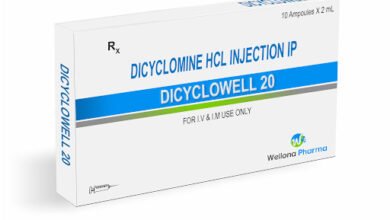How Diaphragm Pumps Advance Healthcare Treatment Methods

As the healthcare milieu is continually evolving, technological advancements have become the backbone for breakthrough treatment methods. One unsung hero in this progression is the diaphragm pump. Although seemingly modest in its function, this piece of equipment, known for its precision and reliability, has opened doors to innovative treatment approaches and enhanced patient care.
But how exactly has the diaphragm pump managed to leave such an indelible mark on healthcare? This article delves into the myriad ways in which it has established itself as a cornerstone in modern medical practices.
1. Precision In Fluid Control
Accuracy is paramount in the medical realm. From diagnoses to treatment regimens, even the slightest deviation can lead to significant consequences. Diaphragm pumps, like the ones for KNF, are revered for their precision in moving exact volumes of liquids. This unparalleled accuracy is not merely a boon for the medical professional but is a lifeline for patients.
Consider drug delivery systems. Getting the exact dose at the right time can be the difference between recovery and relapse, or in some cases, life, and death. With diaphragm pumps in the equation, the guesswork is eliminated, ensuring that patients receive the precise amount of medication they need when they need it.
2. Ensuring Sterility
Infection control lies at the heart of medical practice. Every instrument, every procedure, and every piece of equipment must prioritize patient safety. The design and operation of diaphragm pumps address this critical concern head-on. Their construction, devoid of internal lubrication, minimizes the avenues for contamination.
This sterile operation becomes particularly vital when handling and processing solutions or bodily fluids that must remain uncontaminated. With these pumps, healthcare professionals can be assured of the integrity of the materials they work with, safeguarding patient health.
3. Gentle Handling Of Sensitive Materials
Healthcare often deals with substances that are delicate and susceptible to changes in their environment. Whether it’s a fragile medication or a volatile biological sample, their preservation is crucial. Diaphragm pumps are remarkably considerate of such sensitive materials. Their design ensures that these substances are exposed to minimal shear and pressure changes during pumping.
By mitigating the risk of damage or alteration, the pump ensures that the integrity of these materials remains intact. In an environment where the smallest alteration can skew results or reduce the efficacy of treatments, such assurance is invaluable.
4. Reliability With Hazardous Materials
The world of healthcare isn’t always about benign saline solutions and harmless pills. At times, treatment methods and research necessitate the handling of hazardous or aggressive chemicals. This is where the resilience of diaphragm pumps shines through. Made of chemically resistant materials, these pumps are adept at transporting potentially harmful substances safely. Their sealed design further minimizes the risk of leaks or spills. In this way, not only do these pumps enhance the safety of treatments and research processes, but they also contribute significantly to the safety of the healthcare professionals handling them.
5. Flexibility Across Fluid Viscosities
Diversity is an inherent trait of the healthcare field, with a vast array of treatments, samples, and solutions to handle. Each of these can differ significantly in viscosity. The versatility of diaphragm pumps is a godsend in such diverse scenarios. They’re capable of managing fluids ranging from the thinnest to the thickest of consistencies.
This adaptability eliminates the need for multiple pumping systems, streamlining operations in medical laboratories and treatment settings. By ensuring consistent performance across a spectrum of fluid types, diaphragm pumps stand as a testament to the adaptability required in modern medical settings.
6. Simplified Maintenance And Longevity
In the hustle and bustle of medical settings, equipment reliability is non-negotiable. Constant breakdowns or lengthy maintenance not only disrupt workflow but can directly compromise patient care. Diaphragm pumps, designed with fewer moving parts than many other pump types, become the epitome of reliability in such scenarios. Their simplicity translates to reduced wear and tear, ensuring a longer operational lifespan.
Furthermore, their maintenance is straightforward, ensuring that healthcare operations aren’t halted for extended periods. In essence, these pumps are emblematic of the dependability that healthcare settings demand.
7. Protection Against Dry Running
Every piece of equipment in healthcare has an expected operational parameter. Pushing beyond these often results in malfunctions or complete breakdowns. Most pumps, when run without fluids (dry running), face a significant risk of damage. However, diaphragm pumps have been designed to resist such perils. Their inherent resistance to damage from dry running ensures they remain functional, even if the fluid source gets unexpectedly depleted.
This feature serves as an added layer of security, preventing sudden malfunctions, which can be particularly critical when the pump is involved in life-sustaining treatments or crucial experiments.
8. The Revolution Of Portable Medical Devices
The shifting paradigm in healthcare leans heavily towards personalization and portability. With an increasing demand for home-based care and treatment, portable medical devices have become the need of the hour. Diaphragm pumps, in their miniaturized form, have become central to this evolution.
Whether it’s a compact dialysis machine that allows a patient more freedom or a wearable drug delivery system that provides medication on the go, diaphragm pumps ensure these devices function flawlessly. Their compact design, combined with efficiency, allows patients to enjoy a quality of life that wasn’t feasible a few decades ago.
9. Mastery In Gas Handling
While much of the discussion revolves around liquids, the medical field also necessitates precise and contamination-free gas handling. Respiratory devices, anesthesia machines, and various other medical equipment require controlled gas flow.
Diaphragm pumps, with their ability to handle gases without introducing contaminants, play a pivotal role in these applications. The seamless transition from liquid to gas handling showcases the pump’s versatility, ensuring both liquid and gas-based medical applications maintain the highest standards of safety and efficacy.
10. Imperviousness To Chemicals
The medical realm introduces equipment to a range of chemicals, each with its unique properties and potential for corrosion or damage. Diaphragm pumps, often crafted from materials resistant to a plethora of chemicals, stand undeterred in such challenge.
This chemical resilience ensures that the pump remains functional and durable, even when exposed to aggressive solvents or solutions. The result? A steadfast assurance to healthcare professionals that the pump will not falter, irrespective of the challenging substances it might encounter.
Final Thoughts
Within the vast arena of healthcare innovations, the humble diaphragm pump stands as a testament to the power of precision, versatility, and reliability. While major breakthroughs often capture the spotlight, it’s these foundational tools that quietly ensure progress and patient care remain paramount. In the dance of medical advancement, the diaphragm pump plays an indispensable, though often unsung, role.
Source link
#Diaphragm #Pumps #Advance #Healthcare #Treatment #Methods



